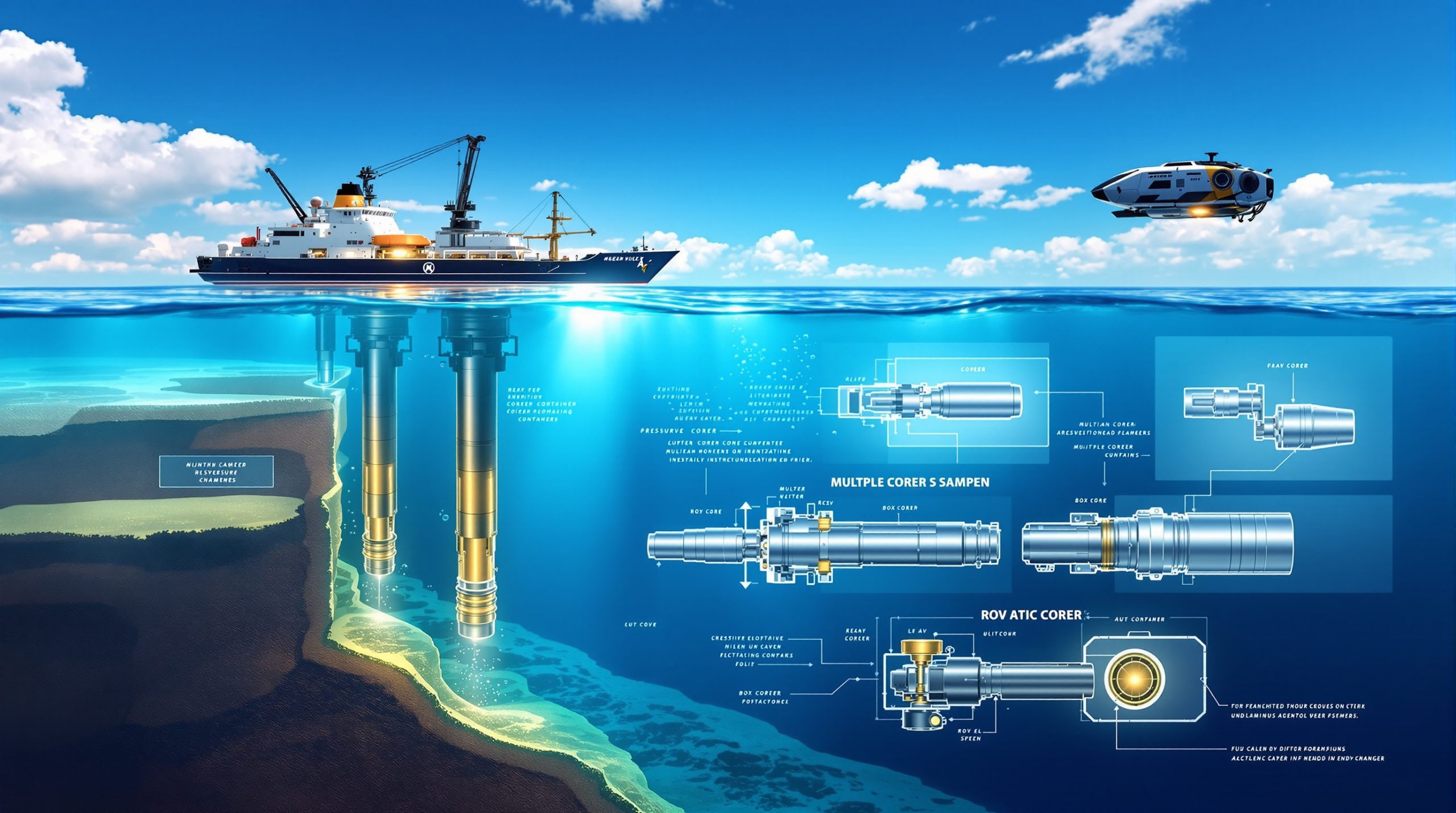Understanding Freeport-McMoRan's Position Amid US Tariff Concerns
Freeport-McMoRan, one of the world's largest copper producers, finds itself at a crossroads as escalating US tariff concerns threaten to reshape the global mining landscape. The company's operational footprint spans multiple countries, with significant assets in Indonesia, North America, and South America, making it particularly vulnerable to shifts in trade policy and tariff implementations.
Recent financial results reflect ongoing challenges for Freeport-McMoRan as it navigates this uncertain trade environment. The company's diversified portfolio of copper, gold, and molybdenum has historically provided some insulation against market volatility, but Trump's policies impact are adding new dimensions of complexity to its operating model.
Industry analysts note that Freeport-McMoRan's substantial Indonesian operations at the Grasberg mine—which historically contributes approximately 30% of global copper supply—represent both a strategic advantage and potential vulnerability in the current tariff climate. The 20% production decline in Indonesia due to maintenance activities comes at a particularly sensitive time as global supply chains realign.
CEO Kathleen Quirk has emphasized the company's commitment to resilience: "Our work to produce our products and grow safely, efficiently, and responsibly has never been more important." This statement underscores the leadership team's recognition that operational excellence becomes even more critical during periods of external market pressure.
How Are US Tariffs Impacting Freeport-McMoRan's Financial Performance?
The effects of proposed US tariffs are already being factored into Freeport-McMoRan's financial outlook. According to recent company statements, these tariffs could increase US material costs by approximately 5%, primarily reflecting the pass-through of tariffs incurred by suppliers of equipment, chemicals, and other essential inputs to mining operations.
This anticipated cost increase comes as the company reported a significant year-over-year decline in financial performance. Net income decreased to $352 million ($0.24 per share) in Q1 2025, compared to $473 million ($0.32 per share) in Q1 2024. Consolidated copper production reached 868 million pounds, down from 1.09 billion pounds in the same period last year.
Q1 2025 consolidated sales stood at 872 million pounds of copper, 128,000 ounces of gold, and 20 million pounds of molybdenum. While commodity price increases partially offset some volume declines, the tariff-related cost pressures threaten to further compress margins in coming quarters.
According to Reuters reporting, both Chairman Richard Adkerson and CEO Kathleen Quirk have expressed broader concerns about how widespread tariffs could affect not just Freeport-McMoRan but the global economy as a whole. This perspective aligns with historical observations from the 2018 steel tariffs, which increased mining capital expenditures by 4-7% industry-wide.
The company's $1.2 billion liquidity reserve reported in Q1 2025 provides some financial flexibility to navigate these uncertainties, but continued tariff escalations could test even well-capitalized mining operations.
What Are Trump's Proposed Copper Tariffs?
In February 2025, former President Trump initiated an investigation into new tariffs specifically targeting copper imports. The primary stated goal is to boost domestic US copper production, which currently accounts for only about 8% of global output, creating a significant dependency on imports.
The strategic importance of copper cannot be overstated in this context. The metal is essential for electric vehicles (which represent approximately 25% of global copper use), military hardware, power grid infrastructure, and countless consumer goods. This critical mineral status makes it a natural focus for policies aimed at reducing import reliance.
The proposed copper tariffs are part of a broader shift in trade policy affecting multiple industries, with particular attention to materials deemed essential for national security and emerging technologies. The investigation follows the pattern of previous Trump-administration trade actions that emphasized domestic production capabilities over globalized supply chains.
Industry analysts warn that implementation of these tariffs could trigger several cascading effects beyond simple price increases. Top copper exporters like Chile and Peru may implement retaliatory measures, potentially including export restrictions that could further constrain global copper outlook. Similar patterns emerged following the 2024 European Union carbon border taxes, which significantly reshaped aluminum trade flows globally.
For US-based operations like those of Freeport-McMoRan, the tariffs create a complex calculus: potential benefits from reduced import competition may be offset by higher input costs and disrupted supply chains. The unpredictability of implementation timelines and congressional approval processes adds another layer of uncertainty for strategic planning.
How Is Freeport-McMoRan Responding to Tariff Challenges?
Freeport-McMoRan has developed a multi-faceted approach to address the challenges posed by potential tariffs. First and foremost, the company is actively monitoring developments in US trade policy to assess potential business impacts across its global operations.
Supply chain resilience has become a central focus, with the company conducting comprehensive assessments of current suppliers and exploring alternative sourcing options to minimize cost increases. This supplier diversification strategy reportedly includes investigating new partnerships in Africa and South America, regions that may be less affected by US-China trade tensions.
CEO Kathleen Quirk has emphasized prudent financial management: "We are carefully managing operating, administrative, and capital spending in this uncertain macroeconomic environment." This cautious approach is coupled with operational efficiency initiatives targeting 5-7% cost savings through 2026.
The company's automation investments, including AI-driven ore sorting technologies, represent another strategic response aimed at improving extraction efficiency regardless of trade policy outcomes. These technological advancements could potentially offset some tariff-related cost increases by reducing labor and energy inputs per ton of production.
Industry observers note Freeport-McMoRan's 2024 partnership with Glencore to secure alternative chemical suppliers as exemplary of forward-thinking supply chain management. Similar approaches are being implemented by Rio Tinto, which has deployed blockchain-based supply chain tracking to enhance transparency and potentially navigate complex tariff regulations.
The company's leadership continues to emphasize its diversified production portfolio spanning copper, gold, and molybdenum as a key strength in navigating these challenges. This product mix provides some natural hedging against sector-specific disruptions.
What Are The Broader Market Implications of US Tariffs on Mining?
The potential fragmentation of global trade into regional blocks represents perhaps the most significant long-term implication of escalating US tariffs. Industry reports suggest that "tariffs may accelerate regional trade blocs, disadvantaging global miners" who have built business models predicated on relatively free movement of materials and products.
Approximately 35% of US mining firms rely heavily on imported raw materials that would be subject to these tariffs, creating widespread vulnerability throughout the sector. The proposed reshoring of critical mineral processing could add an estimated $2-3 billion annually to domestic processing capital expenditures, a significant reallocation of resources that may strain even large companies.
The Critical Minerals Security Partnership (CMSP) between the US and European allies could provide some framework for navigating these changes, but significant challenges remain. For instance, recycling infrastructure gaps limit short-term reshoring potential, with only about 15% of US copper currently being recycled—far below what would be needed to offset import reductions.
Recent examples like the 2024 EU tariffs on Chinese rare earths, which led to 12% cost increases for German automakers, illustrate how quickly tariff effects can cascade through supply chains. Similarly, China's stimulus effects on copper markets cannot be ignored, as demonstrated by how vulnerable even diversified miners can be to policy shifts.
From a competitive positioning standpoint, companies with diversified global operations may have more flexibility to adapt, potentially giving Freeport-McMoRan some advantages over more geographically concentrated competitors. Mining operations with established alternative supply chains face fewer potential disruptions, while those with strong balance sheets are better positioned to absorb short-term cost increases.
FAQ: Freeport-McMoRan and US Tariffs
How much could US tariffs increase Freeport-McMoRan's costs?
Based on current supply chains and supplier discussions, Freeport-McMoRan estimates that proposed tariffs could increase its US material costs by approximately 5%, primarily due to pass-through costs from suppliers of equipment, chemicals, and other essential inputs.
What production challenges did Freeport-McMoRan face in Q1 2025?
The company experienced a 20% drop in production in Indonesia due to planned maintenance activities at the Grasberg operations, contributing to an overall decline in consolidated copper production compared to Q1 2024. This maintenance timing coincided unfortunately with increasing tariff concerns.
How is Freeport-McMoRan positioned to handle potential tariff impacts?
The company cites its $1.2 billion liquidity reserve, diversified production portfolio across copper, gold, and molybdenum, experienced management team, and operational efficiency initiatives as key factors in navigating the uncertain trade environment. Automation investments are also expected to improve resilience.
What specific actions is Freeport-McMoRan taking to address tariff concerns?
The company is evaluating alternative sourcing options including new partnerships in Africa and South America, implementing 5-7% cost reduction initiatives, improving efficiencies through technologies like AI-driven ore sorting, and carefully managing spending across operations, administration, and capital investments.
Why is copper specifically targeted in US tariff discussions?
Copper is considered a strategic material essential for electric vehicles (representing 25% of global copper use), military hardware, power grid infrastructure, and various consumer goods. With domestic production accounting for only 8% of global output, US policymakers view increased self-sufficiency as a national security priority.
Conclusion: Navigating Uncertainty
As Freeport-McMoRan navigates the complex landscape of potential US tariffs, its diversified operational footprint and strong balance sheet provide important advantages. However, the company still faces significant challenges in maintaining cost competitiveness and operational efficiency amid trade policy shifts.
The broader implications for the mining stocks guide suggest a period of strategic realignment as companies reassess supply chains, sourcing strategies, and capital allocation. Those with the financial strength and operational flexibility to adapt quickly will likely emerge in stronger competitive positions.
While the full implementation timeline and specific details of copper tariffs remain uncertain, Freeport-McMoRan's proactive approach to supplier diversification, cost management, and operational efficiency demonstrates a template for resilience that other industry players would be wise to consider. Investors seeking to understand the implications should also consider geopolitical investor strategies when evaluating companies in this sector.
Disclaimer: This article contains forward-looking statements and analysis based on currently available information. Actual outcomes may differ materially from projections due to changes in government policy, market conditions, or other factors. Readers should conduct their own research before making investment or business decisions.
Ready to Capitalise on the Next Major Mineral Discovery?
Stay ahead of market shifts like those impacting Freeport-McMoRan by receiving instant alerts on significant ASX mineral discoveries through Discovery Alert's proprietary Discovery IQ model. Explore why major mineral discoveries can lead to exceptional returns by visiting the dedicated discoveries page and start your 30-day free trial today.




